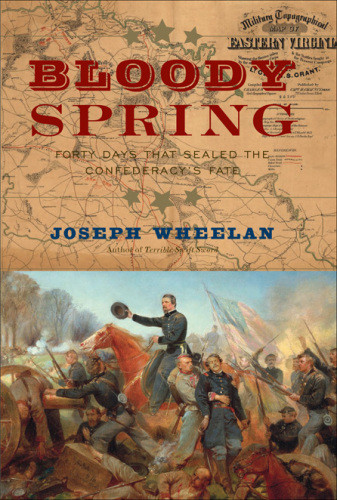

Most ebook files are in PDF format, so you can easily read them using various software such as Foxit Reader or directly on the Google Chrome browser.
Some ebook files are released by publishers in other formats such as .awz, .mobi, .epub, .fb2, etc. You may need to install specific software to read these formats on mobile/PC, such as Calibre.
Please read the tutorial at this link: https://ebookbell.com/faq
We offer FREE conversion to the popular formats you request; however, this may take some time. Therefore, right after payment, please email us, and we will try to provide the service as quickly as possible.
For some exceptional file formats or broken links (if any), please refrain from opening any disputes. Instead, email us first, and we will try to assist within a maximum of 6 hours.
EbookBell Team

4.7
46 reviewsIn the spring of 1864, Virginia remained unbroken, its armies having repelled Northern armies for more than two years. Robert E. Lee's Army of Northern Virginia had defeated the campaigns of four Union generals, and Lee's veterans were confident they could crush the Union offensive this spring, too. But their adversary in 1864 was a different kind of Union commander—Ulysses S. Grant. The new Union general-in-chief had never lost a major battle while leading armies in the West. A quiet, rumpled man of simple tastes and a bulldog's determination, Grant would lead the Army of the Potomac in its quest to destroy Lee's army.
During six weeks in May and June 1864, Grant's army campaigned as no Union army ever had. During nearly continual combat operations, the Army of the Potomac battered its way through Virginia, skirting Richmond and crossing the James River on one of the longest pontoon bridges ever built. No campaign in North American history was as bloody as the Overland Campaign. When it ended outside Petersburg, more than 100,000 men had been killed, wounded, or captured on battlefields in the Wilderness, near Spotsylvania Court House, and at Cold Harbor. Although Grant's casualties were nearly twice Lee's, the Union could replace its losses. The Confederacy could not.
Lee's army continued to fight brilliant defensive battles, but it never mounted another major offensive. Grant's spring 1864 campaign had tipped the scales permanently in the Union's favor. The war's denouement came less than a year later with Lee's surrender at Appomattox Court House.